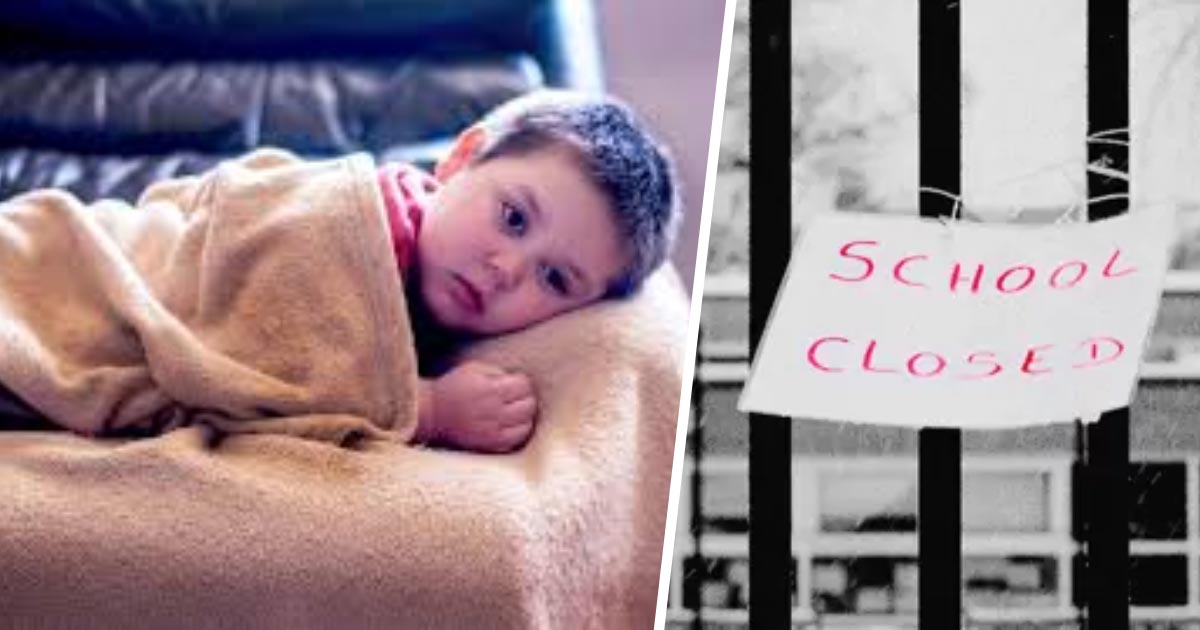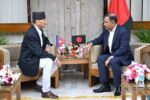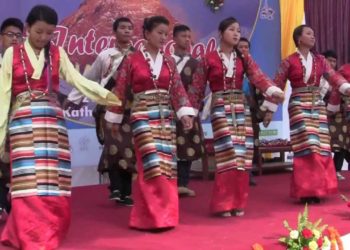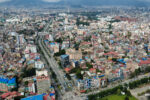KATHMANDU: As of March 23, COVID-19 has expanded its horrible grip in more than 192 countries and territories and 1 international conveyance (the Diamond Princess Cruise, harbored in Yokohama, Japan). When more than 850 million students of the world are directly affected by COVID-19, the epidemic seems still unbridled.
The mortality caused by the epidemic is not as alarming as the fear generated by the spread of it.
As updated by Worldometers.info/coronavirus/, out of 338,724 cases of Corona virus, 99, 003 have already recovered, 214,481 cases are in mild condition when only 10,553 cases are in serious condition. The corona which was crawling in China in late December and the whole month of January, seems galloping in Europe and America and now has covered more than 90% territory with human settlements, it seems outmuscling the low-key measures taken by most of the governments of the world.
The circumstances show, generally, the economically strong nations have better resources and better preparation but for the epidemic like COVID-19. Yet the recovery period of such nations is shorter than the poorer ones’.
Education which fails to get the real priority of the government in general situations suffers the worst during disaster. The disaster comes as equalizer irrespective of the richness but if we consider more deeply we find the economically backward group suffering the most.
Nepal’s education on/in disaster
Education in disaster has multiple impacts: console the panicked mass, utilize the time and update the victims about the preparedness measures etc. In normal disasters people can be treated in group. Though slightly later than in normal situations, the learners can gather in the assembled places and share their learning and experiences with others.
However, the disasters caused by the epidemic are more appalling as they demand high alert, isolation leading to loneliness.
“The education, provided the epidemic emergency goes longer, should console the people in isolation,” says Bishnu Parajuli, a senior adviser of NPABSON Kathmandu, “ and update the isolated with the latest relief attempts.” Expressing his concern towards the late response of the line ministry, Parajuli appeals the government for the joint efforts where the education experts, service providers and the government can go work together to ease the situation.
“We would turn fortunate if the epidemic is over soon as the outbreak occurred towards the end of school sessions,” he says, “but, we have to keep in mind that it may go longer and need to prepare for that in advance.”
As per the UNESCO report there the closures of schools and colleges in Nepal will have affect nearly 8,796,624 young learners. The data shows there are 958, 124 children at pre-primary level, 3,970,016 at primary level and 3,464,763 at Secondary level. There are 404,718 children at tertiary level.
However, the Ministry of Education seem to be in slumber in its response to address the issue. Citing Mar- Apr. as the natural session break, the government seems praying for the termination of the epidemic doing nothing else. Citing the government decree of limiting the gathering in less than 25, no meetings are called to consult about the future scenario provided the epidemic goes longer.
While asked about the Ministry of Education’s plan for curbing the potential risks of epidemic, soft toned spokesperson replied that all educational institutions are closed to keep the children safe. “Most of the school children have attended their annual exam and it’s their natural session break made a bit longer,” said Deepak Sharma the spokesperson at the Ministry, “provided the epidemic gets worse further actions will be taken.” However, he did not specify what those ‘further actions’ included.
It’s true that the man who runs in front of the car gets tired, we cannot regard the person who runs after the car wise as well because the man running behind the car also gets exhausted.
Mitigating the COVID-19 impacts
Many countries have taken mass closure as the immediate action against COVID-19. Schools and colleges have been closed, sports events are cancelled one after another and most of the institutions shut around as the means to stem the outbreak, however, the epidemic is still going ‘unbridled’ in many countries.
With the postponement of exams and impose of travel bans, the developed nations may go through the economic loss as they don’t get the foreign students to get enrolled there, but, they are equipped and somehow prepared enough to go address the educational needs of their nationals.
As such many of them are busy developing programs that can both entertain, involve and teach the young enthusiasts the things they would have continued in their classrooms.
“It’s the time we should keep ourselves busy thinking the way out,” says Ramesh Prasad Sharma an educator for more than three decades, “ we should use the pressure the situation has put on us opting for the alternative ways of teaching.” As an academician, he felt the urgency to change the modality of teaching and now he hinted that online teaching or distance learning/teaching would be one of the alternatives for the time being.
UNESCO, a global body to has set up a COVID-19 task force to provide advice and technical assistance to governments working on the provision of education to students. UNESCO’s attempt is regarded as a response to school closures worldwide.
UNESCO’S Director General Audrey Azoulay has stated that the situation imposes immense challenges for countries to be able to provide uninterrupted learning for all children and youth in an equitable manner.
“Beyond meeting immediate needs, this effort is an opportunity to rethink education, scale-up distance learning and make education systems more resilient, open and innovative,”Azoulay added.
UNESCO has in fact initiated a Global COVID-19 Education Coalition, including Microsoft and the Global System for Mobile Communications (GSMA), which aims at helping countries develop online education, but the problem lies in the fact that most of the users are not used to such content.
“Taking advantage of the smart internet access of the users and the pressure of the time, it’s high time to start new initiatives through more children friendly teaching learning materials,” educator Parajuli concluded reiterating that his organization is always ready to cooperate with the government whenever asked.









Comment